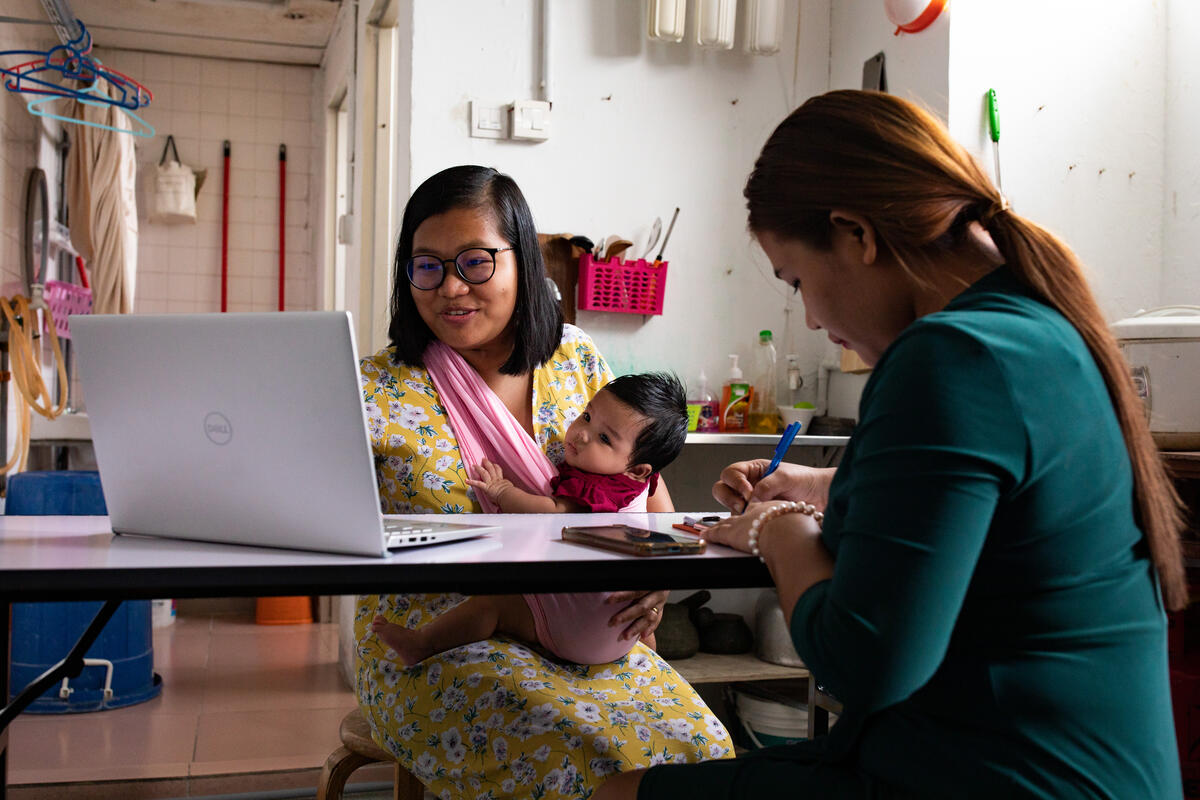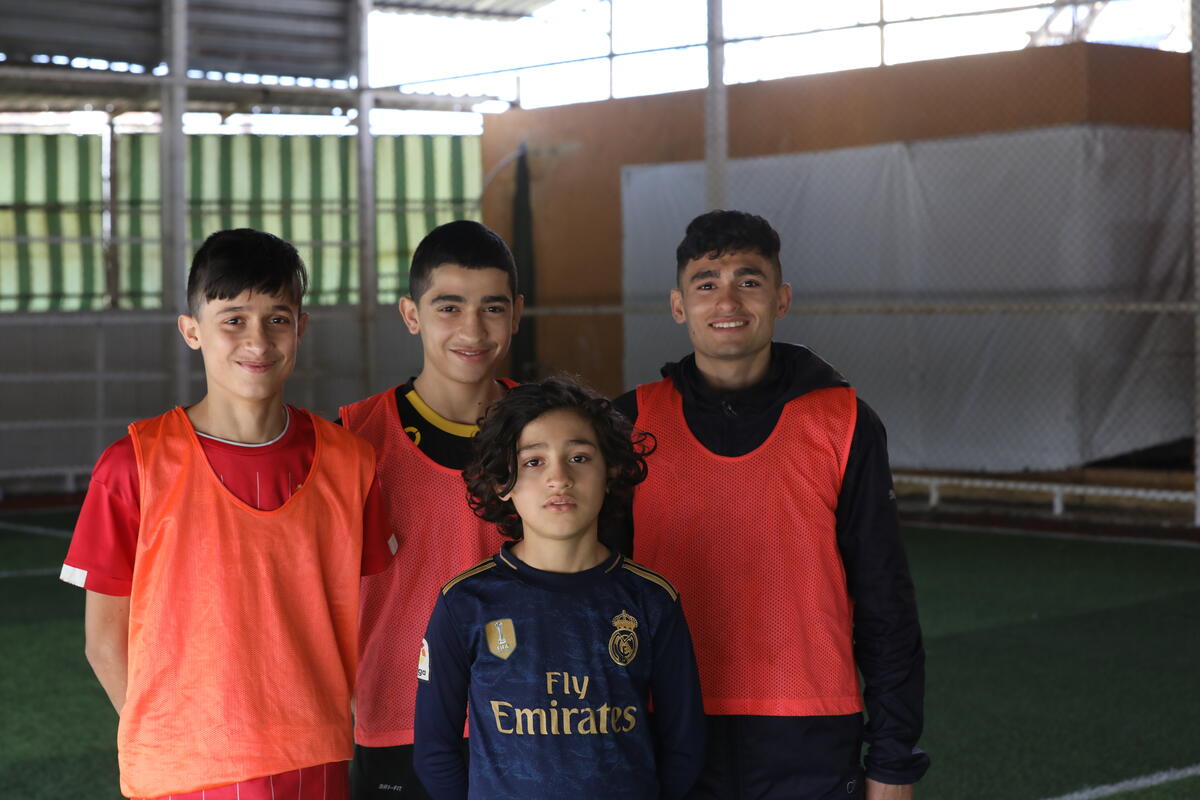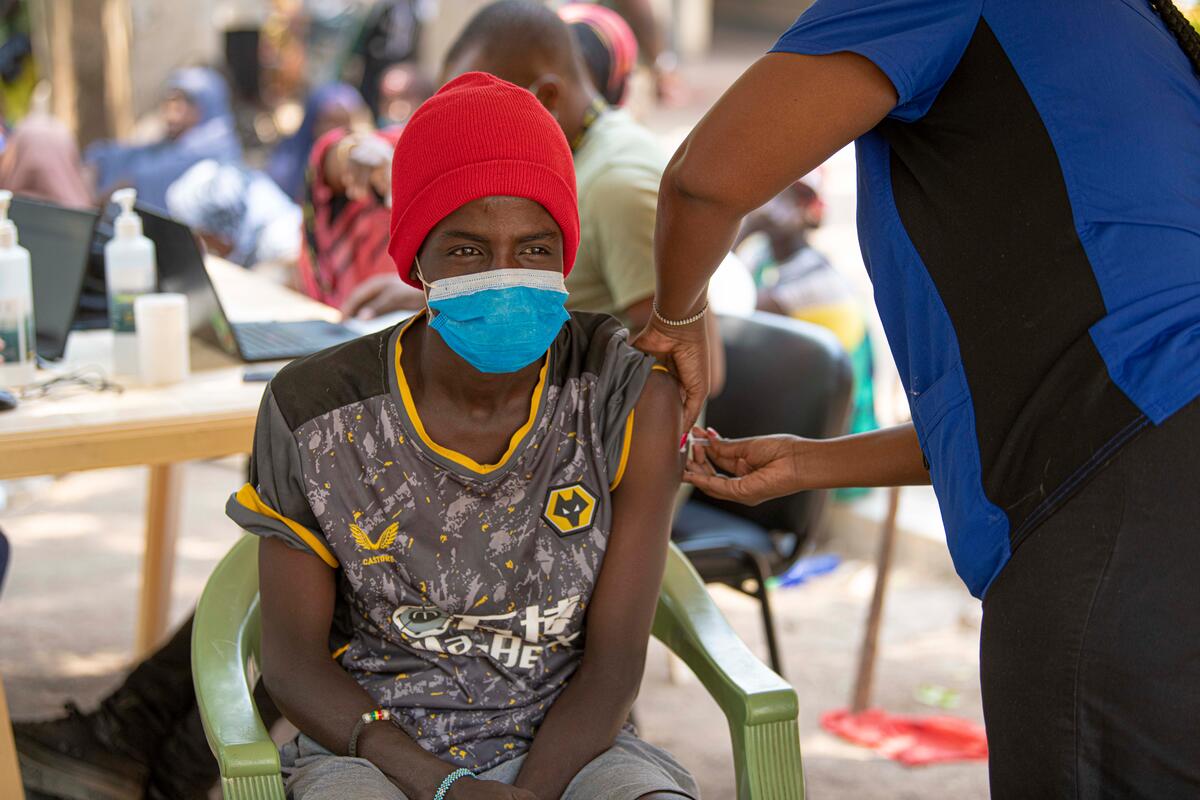Crossing to Safety

Crossing to Safety
Steady streams of traffic flow in both directions across the floating bridge that spans the Euphrates River near Bzeibiz, Iraq. Young men pushing wheelbarrows full of watermelons, cucumbers and tomatoes weave in and out of families lugging oversized suitcases.
Some Iraqis are just crossing for the day, to work as labourers, visit a doctor or purchase goods.
Others are entering Baghdad for a longer stay. They are the lucky few who have managed to secure sponsorship, a requirement imposed by the Iraqi Government on Anbar residents fleeing violence in their province. Humanitarian officials report the number of families lacking sponsorship on the Anbar side of the bridge fluctuates from the dozens up to a hundred.
Bzeibiz Bridge is one of the few lifelines left available to Iraqis trying to flee violence in Anbar and reach Baghdad province, one of the closest relatively safe parts of the country.
After waiting more than a week on the Anbar side of the river, Khaldiya and her family are pushing their 99-year-old mother across the bridge to Baghdad province in a wheelchair. Wrapped in a black abaya and headscarf, Damoula's thin frame barely takes up a third of the wheelchair's seat. Khaldiya explains that her family finally made the decision to flee their home in Fallujah when her mother, suffering from diabetes and a heart condition, began to rapidly deteriorate and lose weight.
"Hopefully we can go straight to the hospital from here," Khaldiya said as one of her sons pushed the wheelchair up to the first Interior Ministry booth, where the family handed over their documents and papers. Officials at the bridge estimate that the processing will take a few hours.
Afterwards, Khaldiya admitted she had no idea where the family will go. "God willing, the hospital will have a place where we can stay," she said, explaining that the family lacked the money to rent an apartment. She said she hopes to return to Anbar soon, but given her mother's condition she can't imagine going home before the violence dies down and services improve.

Since April of this year, when the Iraqi Government launched an offensive in Anbar, increased clashes have forced more than 250,000 civilians across the province to flee their homes. That's just a fraction of the more than 1 million Iraqis from Anbar who have been displaced since the crisis erupted in early 2014. Currently, nearly 350,000 Iraqis from Anbar are sheltering in Baghdad province at a safe distance from the front line.
"When you flee from violent conflict and have lost your possessions and some of your loved ones, the trauma is so deep that the first thing you are looking for is a place where to feel safe and secure, collect your thoughts and eventually figure out a way to start it all over again," said Bruno Geddo, UNHCR's Representative in Iraq. "That is why access to safety is such a fundamental principle in the humanitarian response to a displacement crisis."
Geddo added that access to safe areas is often hard to find, as it becomes enmeshed in ethnic, religious and tribal conflict. "When displaced people are trapped in an insecure area, shifting war fronts will eventually push them to move again, ever more desperate and traumatized," he said. "The only way to break this vicious cycle is to secure access to safety for the civilian population from the start of a conflict."
In a cluster of tents just a few steps from the river's edge, Nahla and her extended family, from Fallujah, received permission to cross the bridge months ago, but since then have been living in a kind of limbo.
"They allowed us to cross, but we have nowhere to go," Nahla said, surrounded by some of her nine children. The camp they are sheltering in is made up of no more than 50 tents and four toilets. Families say it has been more than a week since their last food delivery, and they lack access to even basic health care services. Nahla's daughter-in-law, Abeer, 17 years old, gave birth to her first child while living in this camp and had to travel back into Anbar to reach a functioning hospital.
"Of course our life here is difficult," Nahla said. "We don't have anything – no money and there's no work." In Fallujah her family owned a home and her husband made a small salary working as a labourer. But now without work, Nahla's family, like thousands of others who have fled violence across Iraq, can't afford to pay rent in Baghdad or another nearby town.
In recent weeks UNHCR has opened two new camps on the Baghdad side of the bridge, with capacity for nearly 3,500 people.
Nahla says she and her family ultimately want to return home, but in the meantime they prefer to live in a more organized camp.
"There are always people we don't know coming and going," Nahla said, pointing to the crowds of people at the bridge entrance. "Honestly sometimes we get scared living here."














